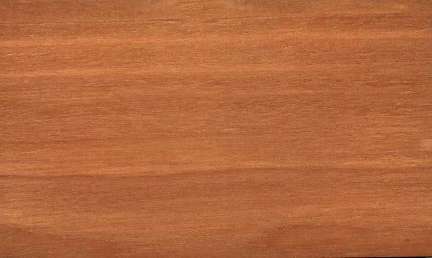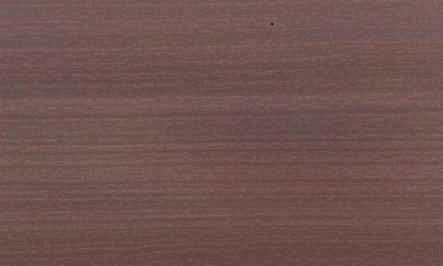 
Jagua (Genipa americana)
Family: Rubiaceae
Common names: Angelina, Arasaloe, Bi, Bois de fer, Brir, Caruto, Caruto rebalsero, Gene pas, Genepas, Genip, Genipa, Genipap, Genipapa, Genipapeiro, Genipapo, Genipapo do matto, Genipat, Genipayer, Genipo, Geniptree, Gigualti, Guaitil, Guaitil blanco, Hagua, Haitoc, Huito, Huitoc, Irayol, Jacua, Jagua, Jagua azul, Jagua blanco, Janipha, Jenipapo, Jenipayer, Junipa, Junipapo, Juniper, Juripapo, Lana, Maluco, Nandigua, Nandipa, Palo colorado, Ta, Tapaculo, Taparoepa, Taproepa, Xagua
Distributed in: Argentina, Bolivia, Brazil, Columbia, Costa Rica, Cuba, Dominican Republic, Ecuador, Guatemala, Guyana, Haiti, Jamaica, Mexico, Panama, Peru, Puerto Rico [US], Suriname, Venezuela (Central America, Latin America, Oceania and S.E. Asia)
Distribution overview: General distribution throughout tropical America, from the West Indies and Mexico to Argentina including Guatemala, Costa Rica, Colombia, Venezuela, Suriname, Peru and Brazil. Widely planted for its shade and fruit. Found on well drained soils as well as periodically flooded river banks.
Common uses: Agricultural implements, Bedroom suites, Bent Parts, Boat building (general), Boxes and crates, Cabinetmaking, Carvings, Chairs, Charcoal, Chests, Concealed parts (Furniture), Cooperages, Core Stock, Decorative plywood, Decorative veneer, Desks, Dining-room furniture, Domestic flooring, Door, Dowell pins, Dowells, Drawer sides, Factory flooring, Figured veneer, Fine furniture, Floor lamps, Flooring, Fuelwood, Furniture , Furniture components, Furniture squares or stock, Furniture, Handles, Hatracks, Heavy construction, Joinery, Kitchen cabinets, Light construction, Living-room suites, Matches, Office furniture, Parquet flooring, Piling, Plain veneer, Plywood, Poles, Radio - stereo - TV cabinets, Rustic furniture, Shafts/Handles, Skis, Sporting Goods, Stools, Structural plywood, Sub-flooring, Tool handles, Toothpicks, Turnery, Vehicle parts, Veneer, Veneer: decorative, Wooden shoes
Environment profile: Widespread
Tree size: Trunk diameter is 200-250 cm
Colors: the heart isYellow to golden-yellow to orange, Yellowish brownand the sapwoodSame as heartwood, White to yellow.The grain isStriped figure, the textureMediumand the lusterMedium
Natural durability: Vulnerable to attack by dry-wood termites, Vulnerable to attack by pinhole borers
Odor: No specific smell or taste
Kiln Schedules: Dry at a slow speed
Drying Defects: Slight surface checking, Slight twist/warp
Ease of Drying: Thick Stock Requires Care
Tree Identification: Bole/stem form is not buttressed
Comments: General finishing qualities are rated as good Genipa fruit is used for the production of a sour refreshing drink. An indelible stain is prepared from the immature fruit.
Blunting Effect: Little
Boring: Fairly easy to very easy
Carving: Fairly Easy to Very Easy
Cutting Resistance: Low cutting resistance
Gluing: Satisfactory gluing properties
Mortising: Very Good to Excellent
Moulding: Good finishing
Movement in Service: Good finishing
Nailing: Difficult to nail, Holds nails well
Planing: Very Good to Excellent
Resistance to Impregnation: Resistant sapwood
Resistance to Splitting: Good
Response to hand tools: Responds Readily
Routing recessing: Fairly Easy to Very Easy
Sanding: Yields smooth surfaces
Turning: Good results
Polishing: Good; Staining: Staining (Characteristic) = coloured water-soluble extract; Varnishing: Good;
- Numerical data Metric
- Numerical data English
- Strength properties
- References
 |
 |
 |
 |
| Item |
Green |
Dry |
Metric |
| Specific Gravity |
0,53 |
0,62 |
|
| Density |
|
737 |
kg/m3 |
| Bending Strength |
792 |
1259 |
kg/cm2 |
| Crushing Strength |
329 |
543 |
kg/cm2 |
| Hardness |
|
728 |
kg |
| Impact Strength |
|
|
cm |
| Shearing Strength |
|
143 |
kg/cm2 |
| Stiffness |
90 |
127 |
1000 kg/cm2 |
| Tangential Shrinkage |
8 |
|
% |
| Radial Shrinkage |
4 |
|
% |
| Weight |
721 |
608 |
kg/m3 |
| Maximum Load |
|
|
cm-kg/cm3 |
| Toughness |
|
207 |
cm-kg |
| Static Bending |
|
|
kg/cm2 |
|
 |  |  |  | | Item | Green | Dry | English | | Bending Strength | 11267 | 17912 | psi | | Density | | 46 | lbs/ft3 | | Hardness | | 1606 | lbs | | Maximum Crushing Strength | 4685 | 7735 | psi | | Shearing Strength | | 2043 | psi | | Stiffness | 1292 | 1807 | 1000 psi | | Toughness | | 180 | inch-lbs | | Specific Gravity | 0.53 | 0.62 | | | Weight | 45 | 38 | lbs/ft3 | | Radial Shrinkage | 4 | | % | | Tangential Shrinkage | 8 | | % | | Volumetric Shrinkage | 13 | | % | |
Shrinkage, Tangential = fairly large
Bending strength (MOR) = medium
Shrinkage, Volumetric = fairly large
Shrinkage, Tangential = moderate
Shrinkage, Radial = moderate
Bending strength (MOR) = high
Shrinkage, Radial = small
Shrinkage, Radial = fairly large
Modulus of Elasticity (stiffness) = low
Max. crushing strength = high
Density (dry weight) = 46-52 lbs/cu. ft.
Shrinkage, Volumetric = large
Max. crushing strength = medium
Hardness (side grain) = medium
Hardness (side grain) = hard
Density (dry weight) = 53-60 lbs/cu. ft
Shrinkage, Volumetric = small
Shrinkage, Volumetric = moderate
Shrinkage, Tangential = small
Shrinkage, Radial = very small
Modulus of Elasticity (stiffness) = very high
Modulus of Elasticity (stiffness) = medium
Max. crushing strength = low
Density (dry weight) = 38-45 lbs/cu. ft.
Bending strength (MOR) = very high
Almeida, D.G. de, Costa, J.R. da,1956,Madeiras do Brasil. (Timbers of Brazil.,Min. Ag. Servico de Economia Rural, Rio de Janeiro, Brazil,pp56Bena, P.,1960,Essences Forestieres de Guyane,Bureau Agricole et Forestier Guyanais GuyanaBerni, C.A., Bolza, E., Christensen, F.J.,1979,South American Timbers - The Characteristics, Properties and Uses of 190,Species,C.S.I.R.O Div. Building ResearchChudnoff, M.,1984,Tropical Timbers of the World,U.S.A. Department of Agriculture, Forest Service, Forest Products,Laboratory, Madison.Erfurth, T., Rusche, H.,1976,The Marketing of Tropical Wood B. Wood Species from S. American Tropical,Moist Forests,F.A.O. Forestry DepartmentFalla Ramirez, A.,1971,Resultados de Estudios Fisico-Mechanicos de Algunas Maderas de la Serrania,de San Lucas. (Some timbers of the San Lucas mountain range.,Plegable Divulgativo, Div. Forestal, Inderena Colombia,pp6Fanshawe, D.B.,1954,Forest Products of British Guiana Part 1 Principal Timbers,Forest Department British Guiana Forestry Bulletin (New Series 2nd,Edition,No.1Fors, A.J.,1965,Maderas Cubanas,Inst. Nac. Ref. Agraria La HabaraFrance - Comite Nacional des Bois Coloniaux,1931,Etude Physique et Mecanique des Bois Coloniaux,Assoc. Colonies-Sciences & Comite National des Bios Coloniaux, Paris,,FranceHoheisel, H., Karstedt, P.,1967,Identification of Ecuadorian Wood Sp. for possibilities of Utilization on,the basis of Technological Results,Institito Forestal Latino-Americana Merida VenezualaHoheisel, H.,1968,Identification of some Colombian wood Sp. and their possible use on the,basis of physical and mechanical properties,Latin American Forest Research and Training Institute, Merida VenezualaHoward, A.L.,1948,A Manual of Timbers of the World.,Macmillan & Co. Ltd. London 3rd ed.Kribs, D.A.,1950,Commercial and Foreign Woods on the American Market (a manual to their,structure, identification, uses and distribution,U.S.A. Penn. State College, Tropical Woods LaboratoryLittle, E.L., Wadsworth, F.H.,1964,Common Trees of Puerto Rico and the Virgin Islands,U.S.A. Department of Agriculture, Agriculture Handbook,No.249Little, E.L.,1948,A Collection of Tree Specimens from Western Ecuador,Caribbean Forester,9(3,pp215-98Longwood, F.R.,1961,Puerto Rican Woods - Their Machining Seasoning and Related Characteristics,U.S.A. Department of Agriculture, Agriculture Handbook,No.205Marshall, R.C.,1934,Trees of Trinidad and Tobago,Government Printer Port of Spain TrinidadMarshall, R.C.,1939,Silviculture of the trees of Trinidad and Tobago - British West Indies,O.U.P.,LondonRecord, S.J., Hess, R.W.,1943,Timbers of the New World,Yale University PressRecord, S.J., Mell, C.D.,1924,Timbers of Tropical America,Yale Univ. PressRecord, S.J.,1927,Trees of Honduras,Tropical Woods,10, pp10-47Rizzini, C.T.,1978,Arvores e Madeiras Uteis do Brasil: Manual de Dendrologia Brasileira,Editora Edgard Blucher LTDA BrazilSallenave, P.,1955,Proprietes Phyiques et Mecaniques des Bois Tropicaux de l'Union Francaise,C.T.F.TSchiffino, J.,1945,Riqueza Forestal Dominicana (Three volumes,Secretaria de Estado de Agric. Ind. y TrabajoTakahashi, A.,1975,Compilation of data on the Mechanical Properties of Foreign Woods (Part 2,Central and South America,Shimane University, Japan, Research Report on Foreign Wood No.4Tropical Woods,1968,Madeiras Comercias Brasileiras,Inst. Pesq. Tec. Sao Paulo Brazil Publ.,857Wise, L.E.,1971,Estudio dentrologico e Deterinacao das Caracteristicas Fisicas e Mecanicas,do,Genipapo (Genipa americana L.,Brasil Florestal,2(8,PP17-21Wolcott, G.N.,1940,A List of the Woods arranged according to their resistance to the attack,of,the 'Polilla', the Dry-wood Termite of the West Indies, Cryptotermes,brevis Walker,Caribbean Forester,1(4,PP1-10
|









